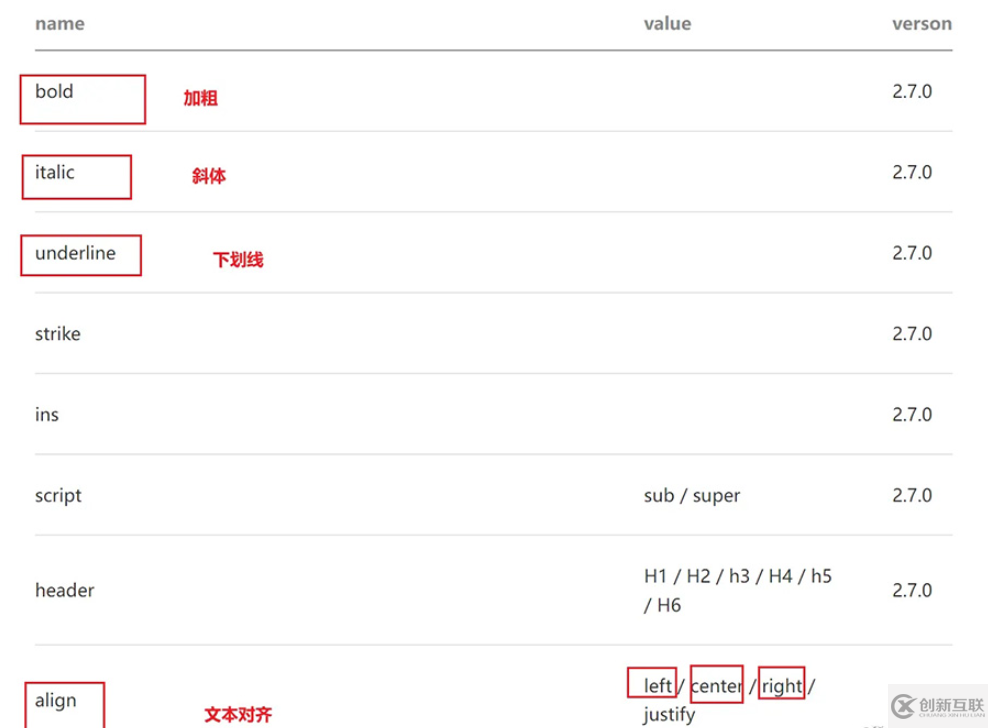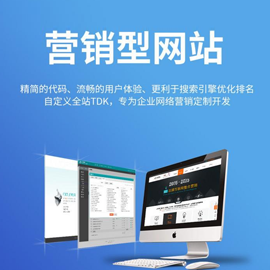微信小程序中如何實(shí)現(xiàn)富文本編輯器
這篇文章主要講解了“微信小程序中如何實(shí)現(xiàn)富文本編輯器”,文中的講解內(nèi)容簡單清晰,易于學(xué)習(xí)與理解,下面請大家跟著小編的思路慢慢深入,一起來研究和學(xué)習(xí)“微信小程序中如何實(shí)現(xiàn)富文本編輯器”吧!
創(chuàng)新互聯(lián)公司專業(yè)為企業(yè)提供樂至網(wǎng)站建設(shè)、樂至做網(wǎng)站、樂至網(wǎng)站設(shè)計、樂至網(wǎng)站制作等企業(yè)網(wǎng)站建設(shè)、網(wǎng)頁設(shè)計與制作、樂至企業(yè)網(wǎng)站模板建站服務(wù),10年樂至做網(wǎng)站經(jīng)驗(yàn),不只是建網(wǎng)站,更提供有價值的思路和整體網(wǎng)絡(luò)服務(wù)。
1. 實(shí)現(xiàn)
實(shí)現(xiàn)的功能點(diǎn)如下:
文本加粗、斜體、下劃線,對齊方式
撤銷、恢復(fù)、插入圖片、刪除功能。
2. 創(chuàng)建發(fā)布頁面,實(shí)現(xiàn)基本布局
首先創(chuàng)建發(fā)布頁面 article,在 app.json 中通過配置生成頁面即可。
"pages": [ "pages/article/article" ]
在 article.wxml 中,書寫結(jié)構(gòu):
<view>
<!-- 文章類型 -->
<view>
<picker bindchange="bindPickerChange" model:value="{{index}}" range="{{array}}">
<view class="picker">
文章類型:{{objectArray[index].name}}
</view>
</picker>
</view>
<!-- 文章標(biāo)題 -->
<view>
<input name="title" class="title" placeholder="請輸入文章標(biāo)題" maxlength="18" model:value="{{title}}"></input>
</view>
<!-- 編輯區(qū) -->
<view class="container">
<view class="page-body">
<view class='wrapper'>
<!-- 操作欄 -->
<view class='toolbar' bindtap="format">
<i class="iconfont icon-zitijiacu"></i>
<i class="iconfont icon-zitixieti"></i>
<i class="iconfont icon-zitixiahuaxian"></i>
<i class="iconfont icon-zuoduiqi"></i>
<i class="iconfont icon-juzhongduiqi"></i>
<i class="iconfont icon-youduiqi"></i>
<i class="iconfont icon-undo"></i>
<i class="iconfont icon-redo"></i>
<i class="iconfont icon-charutupian"></i>
<i class="iconfont icon-shanchu"></i>
</view>
<!-- 文章內(nèi)容區(qū),富文本編輯器 -->
<editor id="editor" class="ql-container" placeholder="{{placeholder}}" showImgSize showImgToolbar showImgResize>
</editor>
<!-- 發(fā)布按鈕 -->
<view class="button" bindtap="formSubmit">發(fā)布</view>
</view>
</view>
</view>
</view>在 article.wxss,書寫基本的樣式:
page{
width: 740rpx;
margin: 0 auto;
background-color: #f9f9f9;
}
.title {
border: 1rpx solid #f2f2f2;
margin: 10rpx;
height: 70rpx;
line-height: 70rpx;
border-radius: 10rpx;
}
.picker{
padding: 10rpx;
}
.wrapper {
padding: 5px;
}
.iconfont {
display: inline-block;
padding: 8px 8px;
width: 24px;
height: 24px;
cursor: pointer;
font-size: 20px;
}
.toolbar {
box-sizing: border-box;
border-bottom: 0;
font-family: 'Helvetica Neue', 'Helvetica', 'Arial', sans-serif;
}
.ql-container {
box-sizing: border-box;
padding: 12px 15px;
width: 100%;
min-height: 30vh;
height: auto;
background: #fff;
margin-top: 20px;
font-size: 16px;
line-height: 1.5;
border: 1rpx solid #f2f2f2;
border-radius: 15rpx;
}
.button{
width: 360rpx;
height: 80rpx;
line-height: 80rpx;
text-align: center;
margin: auto;
margin-top: 50rpx;
border-radius: 8rpx;
font-size: 32rpx;
color: white;
background-color: #497749!important;
}這時我們會發(fā)現(xiàn)中間的操作欄圖標(biāo)不顯示,我們需要在 article.wxss 中頭部引入 iconfont.wxss 字體圖標(biāo)。 iconfont.wxss 文件獲取地址
@import "./assets/iconfont.wxss";
3. 實(shí)現(xiàn)編輯區(qū)操作欄的功能
首先,我們需要獲取富文本編輯器實(shí)例 EditorContext,通過 wx.createSelectorQuery 獲取,我們在頁面 Page 函數(shù)中,創(chuàng)建 onEditorReady 函數(shù),用于獲取該實(shí)例:
onEditorReady() {
const that = this
wx.createSelectorQuery().select('#editor').context(function (res) {
that.editorCtx = res.context
}).exec()
}然后將該方法綁定到富文本編輯器的 bindready 屬性上,隨著富文本編輯器初始化完成后觸發(fā),從而獲取實(shí)例。
<editor id="editor"
class="ql-container"
placeholder="{{placeholder}}"
showImgSize
showImgToolbar
showImgResize
bindstatuschange="onStatusChange"
read-only="{{readOnly}}"
bindready="onEditorReady">3.1. 實(shí)現(xiàn)文本加粗、斜體、文本下劃線、左對齊、居中對齊、右對齊

我們?nèi)绾涡薷奈谋镜臉邮侥兀?/p>
通過 EditorContext 實(shí)例提供的API:
EditorContext.format(string name, string value),進(jìn)行樣式修改。name:CSS屬性;value:值。
通過查閱微信小程序開發(fā)文檔可知,實(shí)現(xiàn)上述功能,我們需要的 name 和 value的值為:

那么我們?nèi)绾瓮ㄟ^點(diǎn)擊按鈕,來修改文本樣式呢?
首先我們在圖標(biāo)
<i>標(biāo)簽上綁定name和value屬性,填上圖標(biāo)所對應(yīng)上圖的name和value,無value的不填即可。然后在父標(biāo)簽上綁定事件 format,通過該事件函數(shù),使用
EditorContext.formatAPI 進(jìn)行樣式修改。
<view class='toolbar' bindtap="format"> <i class="iconfont icon-zitijiacu data-name="bold"></i> <i class="iconfont icon-zitixieti data-name="italic"></i> <i class="iconfont icon-zitixiahuaxian data-name="underline"></i> <i class="iconfont icon-zuoduiqi data-name="align" data-value="left"></i> <i class="iconfont icon-juzhongduiqi data-name="align" data-value="center"></i> <i class="iconfont icon-youduiqi data-name="align" data-value="right"></i> </view>
Page 函數(shù)中的 format 函數(shù):
format(e) {
let {
name,
value
} = e.target.dataset
if (!name) return
this.editorCtx.format(name, value)
},問題:當(dāng)我們點(diǎn)擊圖標(biāo)時,改變了文本樣式,但是圖標(biāo)的樣式?jīng)]有改變,無法提示我們文本現(xiàn)在的樣式狀態(tài),那該怎么解決呢?
這時候我們就需要動態(tài)改變字體圖標(biāo)的樣式了,比如點(diǎn)擊圖標(biāo)后,改變顏色。
通過查閱 editor 微信小程序開發(fā)相關(guān)文檔后,bindstatuschange 屬性綁定的方法,會在當(dāng)你通過 Context 方法改變編輯器內(nèi)樣式時觸發(fā),會返回選區(qū)已設(shè)置的樣式。
那么我們可以在 data 中,添加 formats 對象,存儲點(diǎn)擊后的樣式屬性。然后在點(diǎn)擊圖標(biāo)按鈕時,通過 bindstatuschange 綁定的方法,得到已設(shè)置的樣式存儲到 formats 中;在模板渲染時,在<i> 的 class 屬性上,添加 {{formats.align === 'right' ? 'ql-active' : ''}}(如文本向右),當(dāng)你點(diǎn)擊了這個圖標(biāo),那么 formats 中就有這個屬性了,那么就添加我們的動態(tài)類名 ql-active 改變圖標(biāo)顏色。
具體實(shí)現(xiàn)
對 editor 標(biāo)簽屬性 bindstatuschange 綁定方法 onStatusChange
<editor id="editor"
class="ql-container"
placeholder="{{placeholder}}"
showImgSize showImgToolbar showImgResize
bindstatuschange="onStatusChange"
read-only="{{readOnly}}"
bindready="onEditorReady"> onStatusChange(e) {
const formats = e.detail
this.setData({
formats
})
}在圖標(biāo)
<i>標(biāo)簽上,添加{{formats.align === 'right' ? 'ql-active' : ''}}
<i class="iconfont icon-zitijiacu {{formats.bold ? 'ql-active' : ''}}" data-name="bold"></i>
<i class="iconfont icon-zitixieti {{formats.italic ? 'ql-active' : ''}}" data-name="italic"></i>
<i class="iconfont icon-zitixiahuaxian {{formats.underline ? 'ql-active' : ''}}" data-name="underline"></i>
<i class="iconfont icon-zuoduiqi {{formats.align === 'left' ? 'ql-active' : ''}}" data-name="align" data-value="left"></i>
<i class="iconfont icon-juzhongduiqi {{formats.align === 'center' ? 'ql-active' : ''}}" data-name="align" data-value="center"></i>
<i class="iconfont icon-youduiqi {{formats.align === 'right' ? 'ql-active' : ''}}" data-name="align" data-value="right"></i>在 article.wxss 添加 ql-active 類
.ql-active {
color: #497749;
}3.2. 實(shí)現(xiàn)撤銷、恢復(fù)、插入圖片、刪除操作
首先在 <i> 標(biāo)簽上綁定相應(yīng)的事件:
<i class="iconfont icon-undo" bindtap="undo"></i> <i class="iconfont icon-redo" bindtap="redo"></i> <i class="iconfont icon-charutupian" bindtap="insertImage"></i> <i class="iconfont icon-shanchu" bindtap="clear"></i>
撤銷 undo
調(diào)用 EditorContext API 即可
undo() {
this.editorCtx.undo()
}恢復(fù) redo
同理
redo() {
this.editorCtx.redo()
}插入圖片 insertImage
同理
insertImage() {
const that = this
wx.chooseImage({
count: 1,
success: function (res) {
wx.showLoading({
title: '正在上傳圖片',
})
wx.cloud.uploadFile({
cloudPath: `news/upload/${time.formatTime(new Date)}/${Math.floor(Math.random() * 100000000)}.png`, // 上傳至云端的路徑
filePath: res.tempFilePaths[0],
success: cover => {
that.editorCtx.insertImage({
src: cover.fileID,
data: {
id: cover.fileID,
role: 'god'
},
success: function () {
wx.hideLoading()
}
})
}
})
}
})
}清空 clear
同理
clear() {
this.editorCtx.clear({
success: function (res) {
console.log("clear success")
}
})
}感謝各位的閱讀,以上就是“微信小程序中如何實(shí)現(xiàn)富文本編輯器”的內(nèi)容了,經(jīng)過本文的學(xué)習(xí)后,相信大家對微信小程序中如何實(shí)現(xiàn)富文本編輯器這一問題有了更深刻的體會,具體使用情況還需要大家實(shí)踐驗(yàn)證。這里是創(chuàng)新互聯(lián),小編將為大家推送更多相關(guān)知識點(diǎn)的文章,歡迎關(guān)注!
當(dāng)前題目:微信小程序中如何實(shí)現(xiàn)富文本編輯器
分享地址:http://m.newbst.com/article10/jesedo.html
成都網(wǎng)站建設(shè)公司_創(chuàng)新互聯(lián),為您提供營銷型網(wǎng)站建設(shè)、響應(yīng)式網(wǎng)站、虛擬主機(jī)、網(wǎng)站內(nèi)鏈、品牌網(wǎng)站制作、移動網(wǎng)站建設(shè)
聲明:本網(wǎng)站發(fā)布的內(nèi)容(圖片、視頻和文字)以用戶投稿、用戶轉(zhuǎn)載內(nèi)容為主,如果涉及侵權(quán)請盡快告知,我們將會在第一時間刪除。文章觀點(diǎn)不代表本網(wǎng)站立場,如需處理請聯(lián)系客服。電話:028-86922220;郵箱:631063699@qq.com。內(nèi)容未經(jīng)允許不得轉(zhuǎn)載,或轉(zhuǎn)載時需注明來源: 創(chuàng)新互聯(lián)

- Google Ads主要有哪些推廣形式? 2023-05-05
- Google SEO優(yōu)化中Meta標(biāo)簽的標(biāo)題如何書寫? 2015-01-12
- 怎樣解決Google有害信息的網(wǎng)站提示 2016-04-10
- 做外貿(mào)網(wǎng)站需了解GOOGLE搜索引擎的檢索和排名機(jī)制 2022-04-09
- google優(yōu)化怎樣做才能取得好的排名? 2016-03-10
- 江蘇網(wǎng)站建設(shè)谷歌代理商告訴你通過 Google AdMob 展示相關(guān)廣告,從數(shù)以百萬計的廣告主那里獲 2016-03-24
- 21種技術(shù)和技巧Google Ads投放谷歌規(guī)劃師運(yùn)用 2023-05-05
- Google英文SEO優(yōu)化的要點(diǎn)是什么? 2015-01-12
- 網(wǎng)站優(yōu)化之Google搜索引擎原理 2016-03-04
- 優(yōu)化Google網(wǎng)站優(yōu)化SEO的7個技巧與關(guān)鍵字工具推薦 2019-12-01
- 如何在Google Chrome中停用混合內(nèi)容安全警告 2016-09-19
- 任何產(chǎn)品都適合google推廣嗎? 2016-04-18